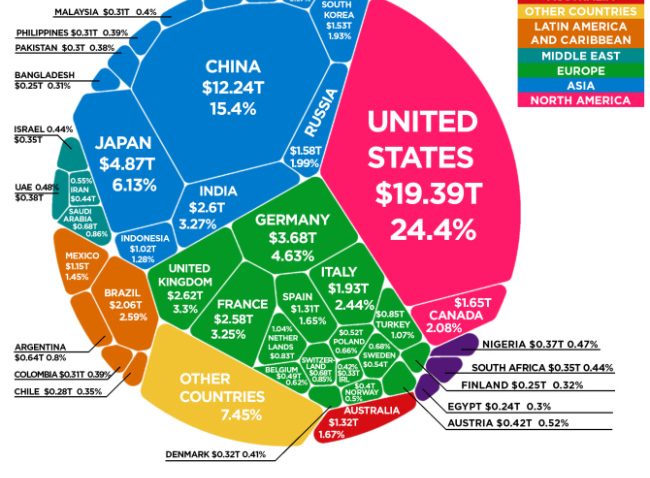
Norman Cantor’s The Sacred Chain (1994) is a highly entertaining and informative book, of the kind I would like to bring to the attention of friends, Jewish and otherwise.
It covers Judaism from its mythological origins to the present day. Cantor dismisses the books of the Pantateuch as largely or entirely mythological: Adam and Eve, Abraham and Isaac, Moses, the flight from Egypt, the conquest of Canaan, and so forth.
“But until the glorious day dawns of archaeological verification of the line of Abraham, we have to stipulate that all of the Jewish history of the first millennium BCE and some of it for a century or two after that, as told in the Bible, is one of the great masterpieces of imaginative fiction or artfully contrived historical myths of all time. From empirical evidence, it did not happen.” – page 5
I may agree, but every religion needs its mythology, indeed, every religion is founded in mythology. Look at Christianity. Look at Islam, look at Judaism. They are all stories. The issue of myth is not whether it is factual, but whether it is true. Some people conflate factuality for truth, whereas truth is the yardstick by which the significance of facts is appraised and evaluated. Hence Lord of the Rings is true, as a story of right and wrong, good against evil, but is not yet considered factual. At least not until the rise of a new civilization, when the King causes the Ring trilogy to be declared to be historical truth, and archaeologists engage in digs to find the lost continent of Numenor.
I digress.
In dealing with the 19th and 20th centuries, Cantor writes with disarming honesty of the divisions of the Jewish people into what he calls the black, the red and the white. [at page 275] The blacks: followers of traditional Talmudic Judaism, the orthodox, the black-coated rabbinate and their congregations “who developed no evident policy of responding to modernity’s challenge”; the reds: Emma Goldman, Leon Trotsky, Bernie Sanders, Julius and Ethel Rosenberg, and all the communists and fellow travelers too numerous to mention. The whites: the capitalists, the followers of David Ricardo, the fully integrated dwellers of leafy suburbs from Berlin to San Francisco, the upper middle class professionals, the psychiatrists, the well-being gurus.
On the reds, Cantor observes:
“In retrospect, Jewish communism looks weird, and perhaps pointless, but at the time there was an unquestioning compulsion of many thousands of morally committed, energetic Jews to devote their lives to it and sacrifice their well-being and that of their families for it” – page 281
I find refreshing Cantor’s straightforward treatment of the massive involvement of Jews with Communism. What was this peculiar attraction for them? He essays two explanations:
- a vestigial memory of biblical prophetic utterances on social justice, coupled with Judaism’s intrinsic rationality, its elevation of the deity to such a transcendent position, putting the burden for society upon humanity itself that, when coupled with unresolved Oedipal conflicts with parents of the same sex, lead some to project outward from there to rebel and try to punish and overthrow patriarchal and matriarchal institutions of authority in society; – pp 276-277
- “the inability of modernity and its institutional forms to absorb sufficiently brilliant and active younger Jews seeking a suitable role for themselves in secular society” – p 277
“Empirical data support the contention of French and German anti-Semites in the 1920s and 1930s that Jews were both capitalists and communists, and thus doubly anathema to the reactionary racist ands religious movements that funneled onto Judaeo-phobic fascism.
“The German cartoonists of the 1920s who depicted Jews as both bloated capitalists swallowing European civilization and nefarious red terrorists plotting to blow up Western civilization were not engaging in absolute fantasy, even though Jewish apologists then and historians now like to make that accusation and try to forget the whole thing.
But we cannot forget it”. – p 275
Nor can I. My first experience of being a racial minority was McGill University in the late 1960s. 80% of the arts faculty was Jewish, at least. The Marxist Leninists of the more orthodox Russian-oriented persuasion were entirely Jewish, while the Maoists were almost exclusively the children of priviligentsia of the Third World, such as Sikhs and Latin American millionaire’s kids. For a movement that based its entire analysis on the divisions of social class, it was startling – and wholly unremarked – how the divisions between the Marxists were entirely racial or ethnic, if you prefer.
The result for me was to begin to insist that race and nation and biology – loose concepts, I admit – were far more important than they were held out to be. I think that the importance of the biological is obvious and would be readily or grudgingly agreed to by most people. The second was my growing conviction that the great secret of modern life was that, while everyone talked social class, structures of oppression and sociological claptrap, most acted as if the biological domain was both real and consequential. Just look at assortative mating among the intelligent. The importance of the biological is exactly the heresy that Herrenstein and Murray, the writers of The Bell Curve, espoused.

___________________
Readers will observe that I have quoted from only a very few pages of The Sacred Chain. Cantor’s book covers vastly more than this review. It is as honest, fair-minded and well-written as one could hope for. Cantor praises and blames Christianity, Judaism and Islam equitably, as he does the secular humanists of more recent times.
My reflections are conditioned by one of the greatest traumas – if that is not too dramatic a word – of my clash with the Marxists and would-be Bolsheviks of university days. There is much, much more to this clever and engaging book than the 20th century Jewish attraction to communism. My reliance on the truth of the rest of the book is reinforced by the truth of what he has to say about that strange attraction of so many Jews for Marxism. Like the influence of biology, it is one of those things which has been noticed but not often spoken of honestly.






